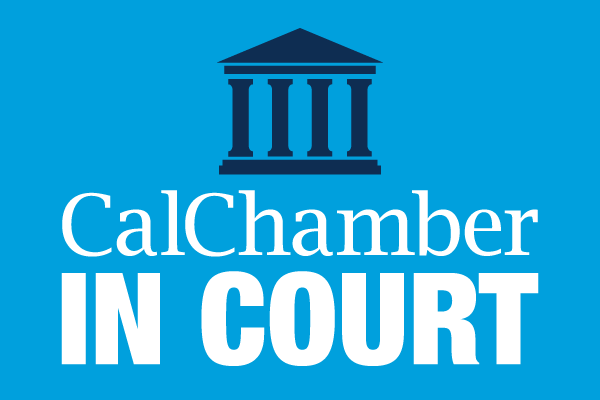
The California Chamber of Commerce has petitioned the California Supreme Court for review in California Chamber of Commerce v. California Privacy Protection Agency.
The case centers on whether Proposition 24 can be enforced by the regulating agency, the California Privacy Protection Agency (CPPA), in a manner different from the measure’s express one-year period between the adoption of implementing regulations and the commencement of enforcement.
Regulations Overdue
In March 2023, with no full and final set of regulations in place to implement Proposition 24, and despite being overdue from the CPPA by more than eight months and yet scheduled for enforcement in July, the CalChamber sued the CPPA to force compliance with the voter-approved, one-year gap between adoption of final regulations by the CPPA and the time they could be enforced.
In filing the case, the CalChamber argued that it would be wholly inconsistent with the text and intent of Proposition 24, not to mention completely unfair, to enforce a law against businesses when they don’t even know what the rules are yet.
On June 30, 2023, Sacramento Superior Court Judge James P. Arguelles ruled in favor of the CalChamber that CPPA be prohibited from enforcing any individual regulation for a one-year period following the date it goes into effect.
The CPPA filed both a petition for writ of mandate and an appeal of the Superior Court’s decision in the Court of Appeal, resulting in a February 2024 ruling from the Court of Appeal that would allow the Agency to operate in complete disregard of Proposition 24’s plain text and intent.
CalChamber Petition
According to the CalChamber’s Petition for Review in the California Supreme Court, the upshot of the Court of Appeal ruling is that California businesses may have as little as one month — or possibly even less — between issuance of regulations and commencement of enforcement, rather than the 12 months mandated by the voters.
“There is no way the voters envisioned a scenario where enforcement of regulations would begin without those regulations being in place for a reasonable period of time that affords both businesses and consumers with adequate time to prepare and comply,” said CalChamber President and CEO Jennifer Barrera. “Respectfully, the Court of Appeal got it wrong as their decision deviates from Proposition 24’s text and context. It is imperative that the California Supreme Court restores common sense and the will of the voters in this matter.”
To read the petition, filed February 20, click here.

